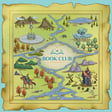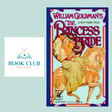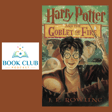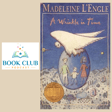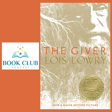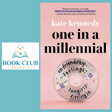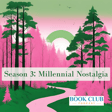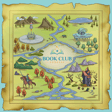
Mrs. Frisby and the Rats of NIMH by Robert C. O’Brien Book Club
In this episode of the Book Club Podcast, host Carly and guest Margaret, both elder millennials, discuss the book Mrs. Frisbee and the Rats of NIMH by Robert C. O'Brien. The discussion includes a detailed summary of the plot, touching on Mrs. Frisbee’s journey to save her sick son, her encounters with wise mice and intelligent rats, and the mysterious background of the rats of NIMH. They delve into themes such as ecosystems and civilizations, the impact of scientific experimentation, and the lack of significant character development. The conversation also compares the book with its darker, magic-filled movie adaptation. The episode concludes with reflections on how millennial childhood media, including dark movies, might have influenced their resilience. Tune in next time for our episode on Harry Potter and the Goblet of Fire.
00:00 Mysterious Marching Figures
01:37 Introduction to the Book Club Podcast
02:55 Summary of Mrs. Frisbee and the Rats of NIMH
07:48 Discussion on Ecosystems and Civilization
13:24 The Role of Education and Longevity
23:00 The Farmer and the Natural Cycles
32:37 Morality and Justice in Mrs. Frisbee's World
33:34 Natural Disasters and Human Vulnerability
35:50 The Scary Imagery of Childhood Movies
36:41 Millennial Nostalgia and Dark Childhood Films
38:05 The Horror Elements in Mrs. Frisbee's Story
38:44 Magical Elements in the Movie Adaptation
43:07 Exploring Themes of Connection and Isolation
45:31 Female Characters and Their Roles
49:01 Hero's Journey and New Genre Themes
51:11 Final Thoughts and Reflections
Subscribe to our email newsletter on Substack: https://bookclubpod.com/ and be sure to follow us on Twitter and Threads!
